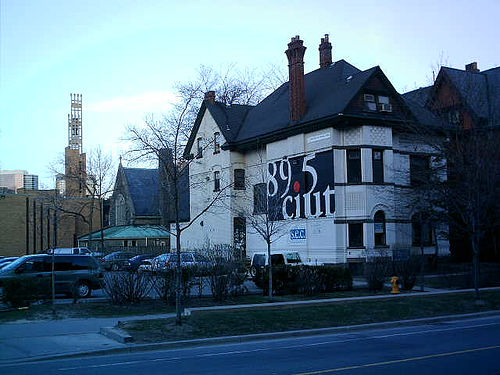Commemorations to mark the 19th anniversary this month of the genocide against the Tutsi people of Rwanda have been taking place everywhere throughout the world. But not quite everywhere.
Human nature remains an often cruel and capricious creature. Just as there remain deniers of the Armenian genocide and the Holocaust, so there are various groups who, each for its own squalid reasons, deny the truth of what happened in Rwanda. The pain this causes to survivors and their families hardly needs elaborating.
The truth is simple enough: While the world stood by (where it wasn’t complicit), a high-ranking cabal of Hutu extremists in 1994 came perilously close to achieving its deranged goal: the extermination of all Tutsi from the face of Rwanda.
The evidence for this statement is both overwhelming and definitive. It includes, among others:
– the direct confessions of many of the genocidaires themselves, not least Jean Kambanda, the man who was Prime Minister of the regime conducting the genocide;
– the findings of the International Criminal Tribunal for Rwanda;
– the testimonies of thousands of survivors;
– the unanimous accounts of the few foreigners who were in Rwanda during the genocide, including Canadians General Romeo Dallaire, Major Brent Beardsley, Major Phil Lancaster and Dr. James Orbinski;
– journalists and UN officials on the scene;
– and finally, the dozens of scholars who have studied the genocide.
In the world of genocide scholars, there is no more doubt about the genocide in Rwanda than there is of the Holocaust. Yet deniers continue to spread their lies and distortions.
Surprisingly enough, prominent among the disseminators of denial is the University of Toronto’s radio station, CIUT, and its regular weekly program The Taylor Report. For many years, this show, named after its host Phil Taylor, has regularly offered time on his program and space on its accompanying website to known Rwanda genocide deniers. The vast majority who affirm the genocide do not appear.
Taylor’s home page, for example, has long carried a blurb for a book by Robin Philpot, perhaps Canada’s most prominent denier, called Rwanda 1994: Colonialism dies hard, insisting that there was no genocide of the Tutsi at all. On the contrary. It was all a diabolical American plot to use a group of Tutsi guerillas known as the RPF to end French influence in the Congo and replace it with the U.S. Among America’s most reliable assets in this deadly initiative, according to Philpot, was a Canadian soldier named Romeo Dallaire.
There is, in the real world, not a shred of evidence for this paranoid fantasy.
Philpot also argues, as do other deniers featured on The Taylor Report, that many people were killed in 1994 by both sides. There was no planned and methodically executed genocide, no conspiracy by armed Hutu forces and militias against defenseless Tutsi, no million Tutsi slaughtered, no hate radio systematically inciting Hutu to be merciless towards the Tutsi.
In the 10 years or so that his show has appeared on CIUT, Mr. Taylor has given an inordinate amount of attention not only to Philpot but to a tiny band that constitutes North America’s most notorious deniers of the Rwanda genocide — Christopher Black, Peter Erlinder, Ann Garrison, David Katz, Keith Harmon Snow, Cynthia McKinney.
Is it really possible that CIUT has an audience riveted by deniers of the Rwanda genocide but indifferent to the views, say, of a Dallaire or an Orbinski or any of the many scholars who’ve written on the subject? Yet it appears that none has ever appeared on this program.
Some time ago, I asked the then-president of the University of Toronto whether even within the framework of free speech, it was appropriate for the university’s radio station to so blatantly promote genocide denial. He explained that the station had editorial independence but agreed to seek information from CIUT’s then-station manager. He reported back to me that the latter disagreed with my assessment of CIUT’s coverage of Rwanda and would keep The Taylor Report running as it was. That was the end of that, until now.
I soon realized that I had made a fatal strategic mistake. I failed to ask the benchmark question that always illuminates these kinds of issues: If a CIUT program denied the Holocaust, would the University administration still choose not to intervene?
I did not make the same mistake this time in my recent email exchanges with the station’s present station manager, Ken Stowar. Mr. Stowar didn’t share my concerns. He told me that “CIUT aims to offer listeners as broad a range of perspectives and opinions as possible. I take every step to ensure that the highest standards of taste and decency are upheld at CIUT.” He disagreed with my criticisms of The Taylor Report while noting that some of General Dallaire’s lectures have been broadcast by CUIT. But Dallaire has not appeared on The Taylor Report.
Finally, in response to my direct question, Mr. Stowar wrote: “No, I would not allow a denier of the Holocaust on CIUT.” Nor, I would confidently assert, would the University of Toronto, editorial independence and free speech notwithstanding. Yet the genocide of Rwanda’s Tutsi, as unequivocal a reality as that of Europe’s Jews, is apparently fair game to both Mr. Stowar and the University.
How do we account for this egregious double standard operating at the University for so many years? Surely the University must be told in no uncertain terms that even one day more is too many.
Photo: Sameer Vasta/Flickr



